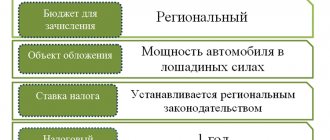When a citizen reaches retirement age, he retires. From this moment on, the pensioner can take care of household chores, raise his grandchildren and live out his old age in peace.
It's no secret that a pensioner has the right to count not only on pension payments, but also on additional benefits that make life a little easier. There is talk of canceling benefits for this category of people in 2021, since the country is still in the midst of an economic crisis. Whether this will come true or not, only time will tell.
Many pensioners have a personal car and are fully obligated to pay transport tax. Regular payment does not depend in any way on the category of citizens. But the Federal Tax Code does not contain any data on benefits for individuals.
In other words, authorities have the opportunity to introduce their own legislative acts on the spot, as well as certain discounts for citizens of retirement age on the payment of transport tax.
Transport tax benefits for pensioners are being introduced because most of them simply will not be able to make full payments, and owners cannot completely abandon the vehicle, because for this age a car is simply vital.
Municipal authorities have every right to introduce preferential tax conditions for pensioners. Each state body of the Russian Federation has the right to establish its own procedure for using benefits. If a person has any questions about this, they will be able to seek help from local authorities.
Benefits are provided to those who express a desire to receive them, since no one will take care of the pensioner and payment will be charged in full. If a citizen has several cars in use, then he will receive a discount on one of them in any case. The pensioner can make his own choice as to which type of transport he will be entitled to.
Rules for drawing up an application
The application is written in free form; there is no legally established form. However, when writing it, you must be guided by the following rules:
- In the right corner, at the top, is written the name of the tax office to which the application is being submitted.
- Then write the last name, first name and patronymic of the person to whom this application is addressed, as well as his position.
- The applicant's surname and initials are written, and the date of birth is also indicated.
- After this, the TIN is registered.
- The place of registration of the applicant, as well as the actual place of residence, must be indicated.
- In order for the tax officer to be able to contact the applicant, he must leave a telephone number and email address.
- The essence of the pensioner's request.
- The application must be accompanied by copies of documents such as a driver’s license, vehicle title, and purchase and sale agreement.
- The application must be signed.
The tax authorities review this application and then inform whether the pensioner must pay transport tax.
Do pensioners pay vehicle tax?
To answer this question correctly, you should contact the fiscal authority with your passport, pension documents, and vehicle registration certificate.
The right to benefit is applicable only when submitting a complete package and from the moment of application. The application is drawn up in free form, indicating the place of the brand, vehicle registration, and contact information. Submission form – paper (at an appointment with the inspector) or electronic (via the Federal Tax Service portal). The legal basis for this pension benefit is Art. 56 of the Tax Code of the Russian Federation. Based on the results of consideration of this application, the fiscal authority informs the applicant in writing about the availability of the benefit / impossibility of providing it. In the first case, the pensioner is fully/partially exempt from paying transport tax; in the second, he is provided with an accurate calculation of the tax amount and an explanation of the payment procedure in accordance with regional legislation.
Zero tax for pensioners
Pensioners may not pay tax at all in the following cases:
- In addition to the fact that a citizen is an old-age pensioner, he also has one of the special statuses: disabled person of the first or second group; veteran of the Patriotic War; hero of the USSR or Russia; victim of a nuclear disaster or who has the Order of Glory of the third degree.
- If a pensioner owns a vehicle that is not taxed in accordance with tax laws.
Last news
Not long ago, the State Duma adopted a bill stating that persons who own large vehicles are exempt from paying this tax. This decision is justified by the fact that the owners of this type of transport already have a huge burden financially, and the budget does not lose anything, since money is still received for the purchase of fuel for these types of transport.
If we talk about regions, then in 2021 the amount of transport tax in Moscow will differ from cities such as St. Petersburg and Krasnodar. Since each region has its own coefficients and calculations are made individually.
Discounts for pensioners
During the analysis of regional legislation, it was possible to identify general patterns in the provision of benefits for pensioners. When paying transport tax, discounts are provided:
- Elderly citizens receiving a labor pension due to reaching a certain age;
- Only for one vehicle registered for a citizen of retirement age;
- Pensioners have only one status. If a pensioner has several special statuses at once, he can receive only one discount; the discounts are not cumulative;
- In full, in part or by establishing a fixed amount;
- Reducing tariffs.
How are car taxes paid for pensioners?
If there are no discounts for transport tax according to local legislation, the responsibility for paying it lies with the pensioner - the owner - this must be done before December 1 of the current year for the previous one. In this case, the fiscal authority has the obligation to send the pensioner a notification-calculation indicating what transport tax for pensioners is payable.
The tax on a car for a pensioner is determined by the engine power (horsepower) and the period of ownership per year (number of months).
Transport tax for pensioners in 2021 is calculated using the formula:
Transport tax = tax rate * horsepower * ownership period (months) / 12 months
If there is a benefit, the pension tax rate is much lower than the general civil rate, in some cases it has a purely symbolic amount, for example, 1-10 rubles. for 1 horsepower. Payment can be made through a banking institution, online (through the portal of the fiscal authority).
Other tax features for pensioners
If the power of a vehicle registered to a pensioner is less than one hundred horses, he can independently choose one of the benefits:
- The pensioner does not pay transport tax at all;
- Payment of only ten percent of tax for each vehicle. This option is best chosen when you own two types of transport (for example, a car and a snowmobile).
If the vehicle's power is more than one hundred horses, a citizen of retirement age can pay tax only for the power that exceeds the limit.
What is the amount of transport tax in 2021?
The issue of abolishing transport tax on the territory of the Russian Federation has been discussed for several years. Both sides have their own arguments regarding this innovation, which indicate that making a particular decision is inappropriate.
In 2021, the amount of transport tax will depend on the capacity of transport. The higher this ratio, the more you need to pay. This method of calculation is already outdated and at the moment there have been visible changes in the situation. Today, a car that has significant power drives on smooth asphalt more accurately than a car with weak power. It follows from this that the tax should either be abolished or the calculation system revised.
The transport tax will most likely not be abolished, as this would be a huge blow to the regional budget. According to a representative of the regional government, the treasury receives about 146 billion rubles every year. It is quite difficult to find a replacement for this amount, especially in such a difficult time for Russia.
Transport is not used
There are situations when transport is registered with a citizen, but he does not use it. What to do in such a situation? Are pensioners required to pay transport tax for an unused vehicle?
The answer to this question is unequivocal - they should. Before a vehicle is deregistered with the traffic police, taxes must be paid for it. Many car owners believe that this is extremely unfair.
If an accident occurs, as a result of which the vehicle cannot be repaired, it is necessary to submit an application to the traffic police as quickly as possible and remove the vehicle from the register. After this, you need to inform the tax office that the vehicle is no longer registered with you.
Conclusion
Consequently, deciding whether a pensioner must pay transport tax depends largely on the provisions of local legislation. Federal legal norms provide exemption only to WWII veterans, heroes of the USSR, the Russian Federation, and other preferential categories. Tax is not payable on vehicles defined in the Tax Code of the Russian Federation. Local legislation may establish either the full tax amount or provide partial discounts for certain types of transport. The presence/absence of benefits for this tax for pensioners depends on the capacity of the region’s budget - this means that the transport tax for pensioners 2021 may differ in size and benefits from previous periods. You should promptly inquire about the availability of benefits from the fiscal authorities.
Benefits in some regions
Let's consider in which regions what benefits are provided:
- Moscow and the region - there are no benefits for pensioners.
- St. Petersburg - complete tax exemption for Russian-made cars with a capacity of less than one hundred horses, for water vehicles with an engine of less than thirty horses.
- Chelyabinsk and the region - if the transport capacity does not exceed one hundred and fifty horses, the rate is equal to one ruble per horse.
- Kemerovo region - if the tax amount is less than 1200 rubles, you do not have to pay it.
- Arkhangelsk and the region - a fixed discount of nine hundred eighty rubles on all types of transport.
- Nizhny Novgorod and region - fifty percent discount for vehicles with a capacity of less than one hundred and fifty horses.
- Rostov and the region - the legislation does not provide for any benefits.
- Sakhalin - if a pensioner uses transport either personally, or his spouse uses transport, a one hundred percent discount is provided.
- Tambov and the region - for motorcycles with a power of less than forty horses, the tax is charged at a preferential rate of four rubles per horse.
- Circassia – an eighty percent discount is provided on any passenger cars and motorcycles.
- Smolensk and the region - there are no benefits.
- Vologda and the region - on cars with a power of less than one hundred horses, as well as on motorcycles with a power of less than forty horses, pensioners are given a discount of one hundred percent.
- Novosibirsk – the discount for self-propelled vehicles is ninety-five percent.
- Magadan - if a pensioner does not work, he is given a 100% discount on any type of transport.
- Kaluga and region - no benefits provided.
Read more about transport tax benefits for pensioners in the article.
Similar articles
- Do large families pay transport tax?
- Transport tax benefits for pensioners
- Are pensioners exempt from paying transport tax?
- Transport tax: benefits for the disabled, pensioners and more
- Transport tax benefits for pensioners in 2016-2017
Benefits for paying transport tax for pensioners in different regions of the Russian Federation
Car tax benefits for pensioners in different regions of the Russian Federation are presented in the table:
| Moscow region | There is no transport tax benefit for pensioners 2016 |
| Saint Petersburg | 100% discount for domestic cars with a power of no more than 150 hp, boats, motor boats, watercraft no more than 30 hp. |
| Leningrad region | 80% discount for cars with power not exceeding 73.55 kW |
| Amur region | The benefit is available for pensioners if the vehicle is driven personally (or by a second spouse), and the vehicle’s power is up to 10 horsepower. |
| Chelyabinsk region | There is a benefit for cars with a power not exceeding 150 horsepower, the tax amount is 1 ruble. for 1 horsepower |
| Kemerovo region | Only for pensioners who have received a labor pension, if the calculated tax amount is up to 1200 rubles, it is provided only for one vehicle |
| Ryazan Oblast | The benefit applies to pensioners with a labor pension, military personnel, and retired law enforcement officers. The benefit is provided in full for powerful cars not exceeding 150 horsepower, motorcycles - up to 45 horsepower. If you own several vehicles, the preferential treatment applies to only one. |
| Altai region | Tax benefits for pensioners on transport tax are set at 100% of the amount accrued by law. Benefits apply only to persons with a labor pension. Applies to cars with a power of no more than 73.55 kW, motorcycles with an engine power of no more than 23.75 kW, and scooters with a power of no more than 33.1 kW. |
| Arhangelsk region | Benefit 980 rubles. for absolutely all vehicles registered in the name of a pensioner |
| Belgorod region | Exemption for one vehicle with power up to 73.55 kW |
| Bryansk region | A 50% discount is provided for motorcycles, scooters with power up to 29.32 kW |
| Vladimir region | 50% tax discount for transport units registered before 01/01/2003 with a power of no more than 55.16 kW, 75% tax discount for powerful cars no higher than 110.33 kW, scooters, motorcycles - up to 36.78 kW |
| Vologda Region | 100% discount on cars with a power of up to 150 horsepower, motorcycles - no more than 40 horsepower |
| Ivanovo region | No benefits |
| Kaliningrad region | No benefits |
| Kaluga region | No benefits |
| Kursk region | The benefit applies to domestic cars, cars with a power of no more than 73.55 kW, for more powerful cars - the rate is 10 rubles. for every horsepower |
| Lipetsk region | The benefit is determined by the power: up to 100 horsepower - 2.50 rubles. for 1 horsepower, from 100-150 horsepower - 7 rubles. for 1 power, 75% discount for pensioners who own motorcycles and scooters with a power not exceeding 29.4 kW |
| Magadan Region | 100% discount for non-working pensioners for transport of any category, subject to non-business activity |
| Murmansk region | Separate benefits have been established for pensioners - former civil servants (tax 5 rubles per 1 horsepower for transport power up to 100 horsepower) and old-age pensioners (the same tax for cars, as well as for motorcycles, scooters up to 35 horsepower - 5 rubles per 1 force) |
| Nizhny Novgorod Region | 50% discount for vehicles with a capacity of up to 150 horsepower; if this standard is exceeded, there is no discount |
| Novgorod region | 50% discount for cars producing 100 horsepower, owners of trucks with no more than 100 horsepower |
| Novosibirsk region | 80% discount for cars up to 150 horsepower, 95% for self-propelled vehicles with caterpillar / pneumatic drive |
| Vologda Region | 100% discount for pensioners - owners of cars up to 150 horsepower, motorcycles up to 40 horsepower, motor boats |
| Orenburg region | 50% discount for transport units of any type, if there are several types - the benefit is given to the vehicle that has the greatest power, traction, gross tonnage |
| Oryol Region | 50% discount for cars with an engine power not exceeding 100 horsepower, motorcycles, scooters - no more than 40 horsepower |
| Penza region | No benefits |
| Pskov region | No benefits |
| Rostov region | No benefits |
| Samara Region | 50% discount on cars with an engine not exceeding 150 horsepower, motorcycles, scooters up to 40 horsepower, motor boats - up to 30 horsepower, self-propelled vehicles on pneumatic / crawler tracks no more than 100 horsepower |
| Saratov region | There are no benefits for pensioners |
| Sakhalin region | 100% for transport of any type, if it is used independently by a pensioner or by a second spouse |
| Sverdlovsk region | 100% benefit for cars with an engine no higher than 150 horsepower, trucks - up to 150 horsepower, motorcycles, scooters no more than 36 horsepower |
| Smolensk region | No benefits |
| Tambov Region | A preferential rate has been established for pensioners - 4 rubles. for 1 horsepower, only for motorcycles with a power of up to 40 horsepower |
| Tyumen region | 80% discount for trucks with a power of no more than 100 horsepower, 75% discount for trucks with a power of -100-150 horsepower, 80% discount for self-propelled transport units up to 100 horsepower |
| Tula region | 50% discount for cars with an engine up to 150 horsepower, scooters up to 20 horsepower |
| Ulyanovsk region | No benefits |
| Yaroslavl region | 100% discount for cars no more than 100 horsepower, for cars exceeding the specified power - tax is paid only on the excess power |
| Jewish Autonomous Okrug | 30% discount – for cars up to 130 horsepower, motorcycles up to 35 horsepower |
| Chukotka Autonomous Okrug | No benefits |
| Khanty-Mansi Autonomous Okrug | 50% discount for cars with a power of up to 200 horsepower, snowmobiles, motor sleds with a power of up to 30 horsepower, motorcycles with a power of 35 horsepower |
| Yamalo-Nenets District | No benefits |
| Republic of Adygea | 50% discount on cars, scooters, motorcycles regardless of power |
| Buryatia | No benefits |
| Dagestan | No benefits |
| Ingushetia | No benefits |
| Kalmykia | No benefits |
| Circassia | 80% discount for any passenger cars, motorcycles, scooters |
Tax benefits in the constituent entities of the Russian Federation
In 2021, benefits for calculating transport tax became mandatory for all regions of the country. Previously, only the most successful of them could boast of such rules. The only question is what preferences are given to pensioners in a particular region. You can find out about the benefits for people of retirement age not only in a special law, but also in the tax office. Due to the differentiation of rules relating to transport tax benefits, only the most general features characteristic of each subject of the country can be identified. Exempt from payment:
- Heroes of the Soviet Union and the Russian Federation;
- Participants, disabled people of the Second World War;
- Former concentration camp prisoners and prisoners of war;
- Survivors of nuclear or man-made disasters (Chernobyl Nuclear Power Plant, discharge on the Techa River, etc.);
- Disabled people of groups 1-2;
- Owners of vehicles with a power of no more than 70 hp.
But the very concept of “pensioner” does not, in fact, appear in the laws. In any case, this person of retirement age must meet one of the specified criteria. In all cases, except, of course, the last one, a disabled pensioner or veteran is exempt from paying for a vehicle with a capacity of up to 200 hp. (inclusive). But this is a general rule, and in a number of regions it has been changed. Thus, in St. Petersburg, these benefits are provided if the figure does not exceed 150 hp. (30 hp for water transport). In the Sverdlovsk region, the conditions for land transport are similar; for mopeds, the limit is 36 hp. The rest of the regions use exactly the general rules indicated above. Permissible capacities may vary, but the main categories of persons remain unchanged. But before writing an application, it is better to clarify the reasons for obtaining tax advantages in a particular subject.
The process of applying for preferential taxation
So, if a pensioner falls into one or more categories of persons who are granted tax preferences, it is necessary to start collecting and preparing papers to register the benefits. In order to apply for benefits, you will need to complete several important legal steps. First, an application for benefits is submitted. In addition, you need to prepare a number of documents confirming the relevant human right, these include:
- Taxpayer's identity document;
- Confirmation of the appropriate basis for receiving benefits (certificate of a participant in the Second World War, ITU certificate, pension certificate, confirmation of the status of a liquidator, etc.);
- Confirmation of the right to a vehicle on which tax will not subsequently be paid;
- Vehicle PTS.
Accordingly, the papers are of an identifying nature only. There is no need to contact any additional organizations or authorities to collect them, which greatly simplifies the preparation process. An application for registration of benefits for one or more property taxes can be drawn up in any form. There are no strict requirements regarding the structure, but a recommended tax relief application form has been developed. It is important to indicate some aspects of the content, in particular, the following information must be written in order of priority:
- Tax office to which the application is sent (submission occurs at the place of registration of the owner of the car).
- Personal details and taxpayer identification number.
- The employee in whose name the document is drawn up.
- Data from the pensioner's passport.
- Registration address and contact details.
- List of attachments (documents submitted along with the application).
- Reasons for applying for benefits.
- Date and signature of the applicant.
After completing the application and preparing the documents, the package is submitted to the territorial tax office. The application can be written in a dark pen, completely by hand, or on the form presented on the Federal Tax Service website. In case of electronic submission of an application through your Personal Account, applications are sent in scanned format. The tax inspectorate can send a response by letter via mail to the address specified in the application or notify it through the taxpayer’s personal account service.







